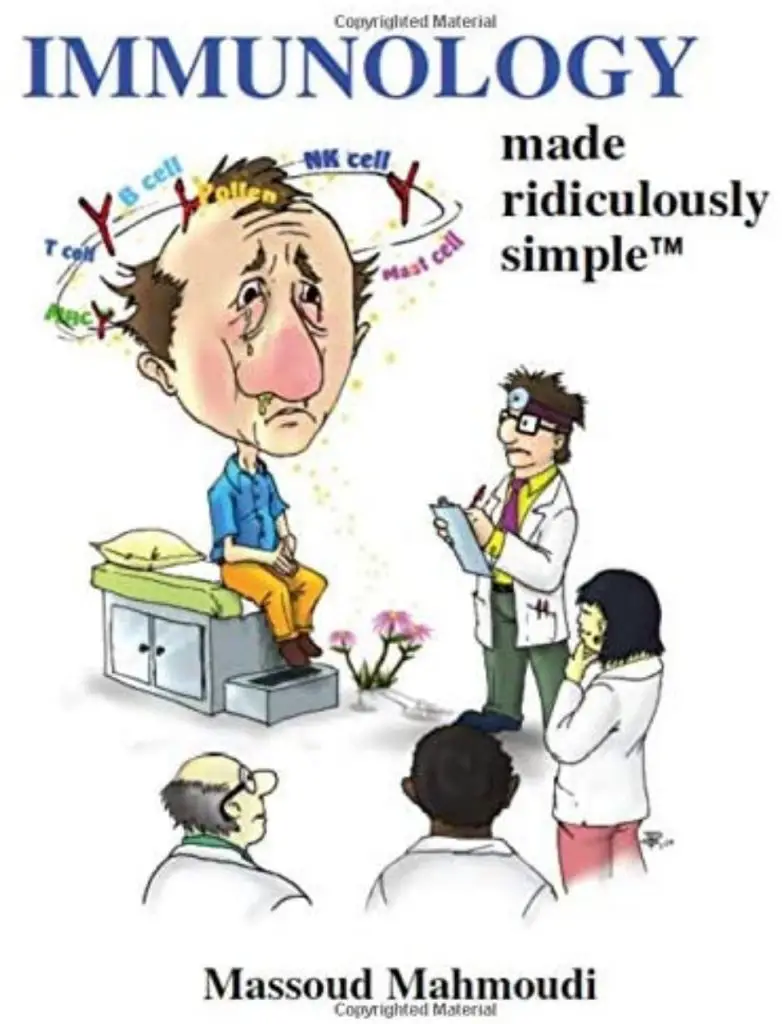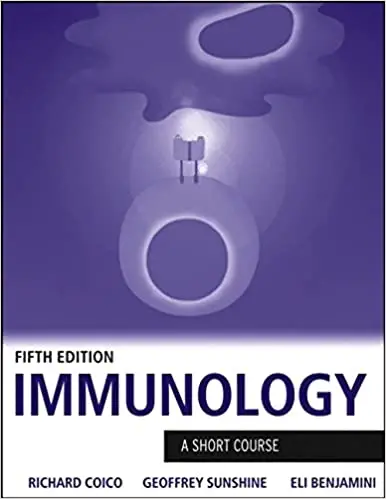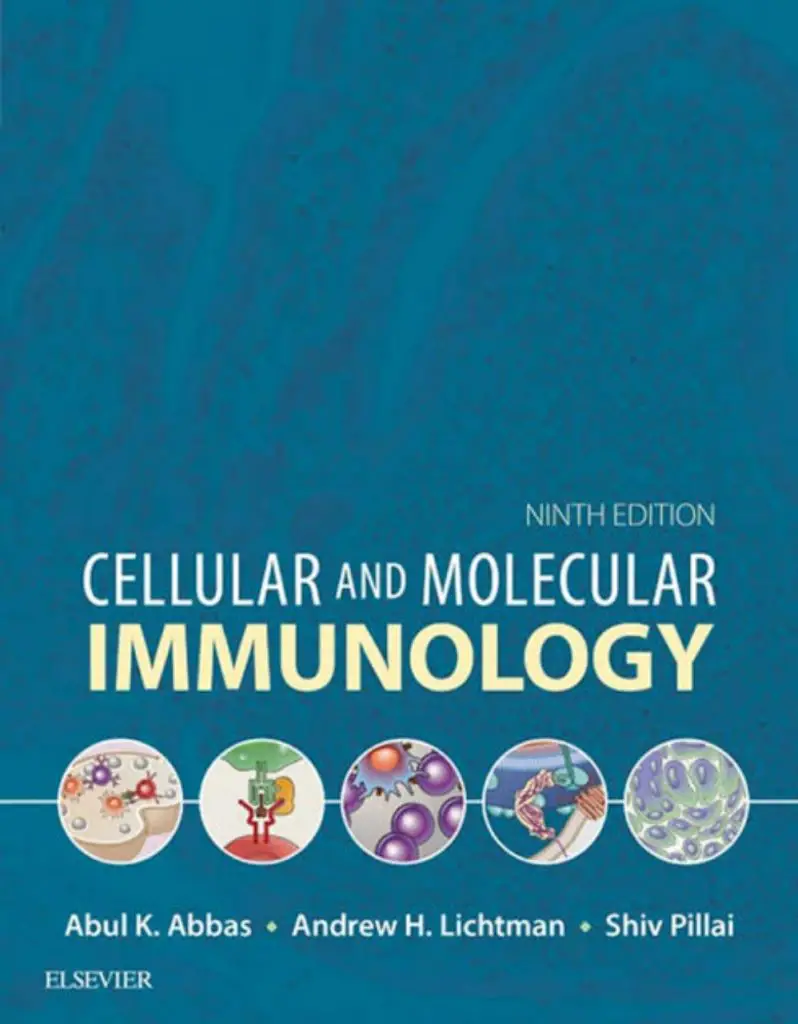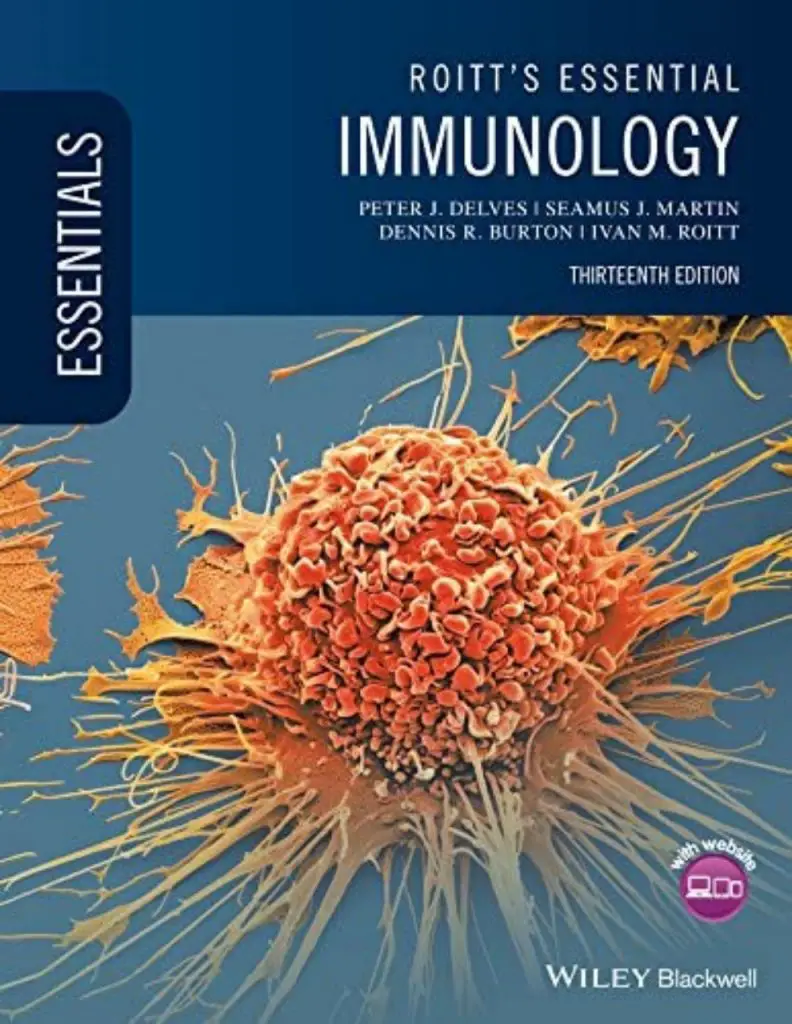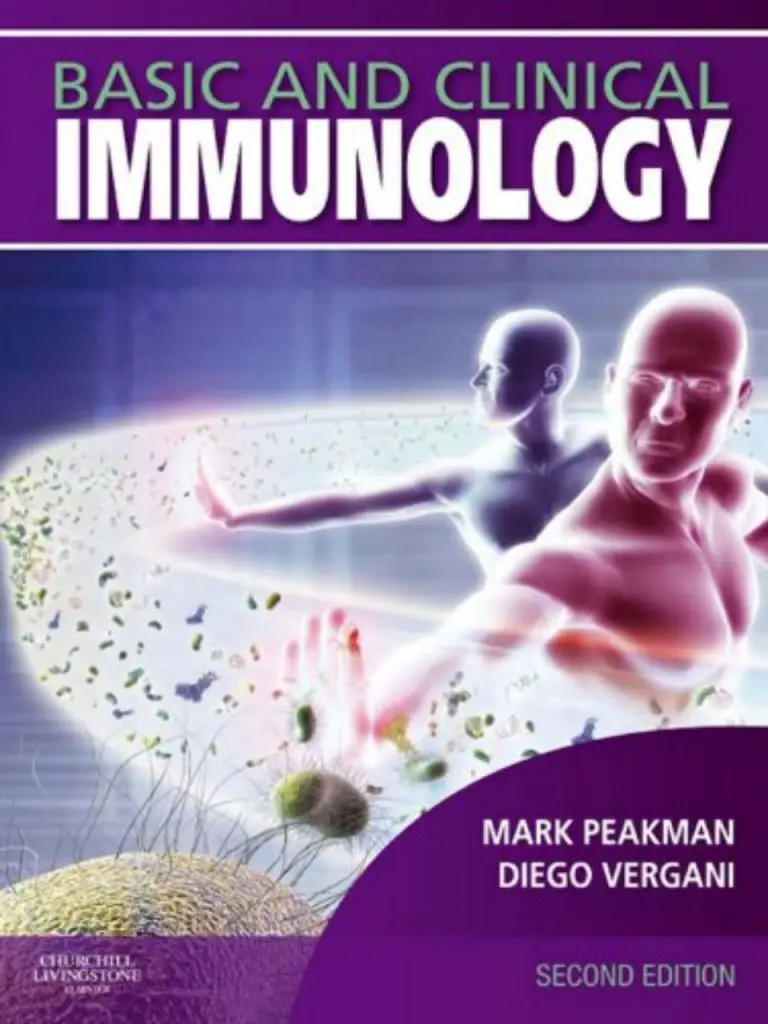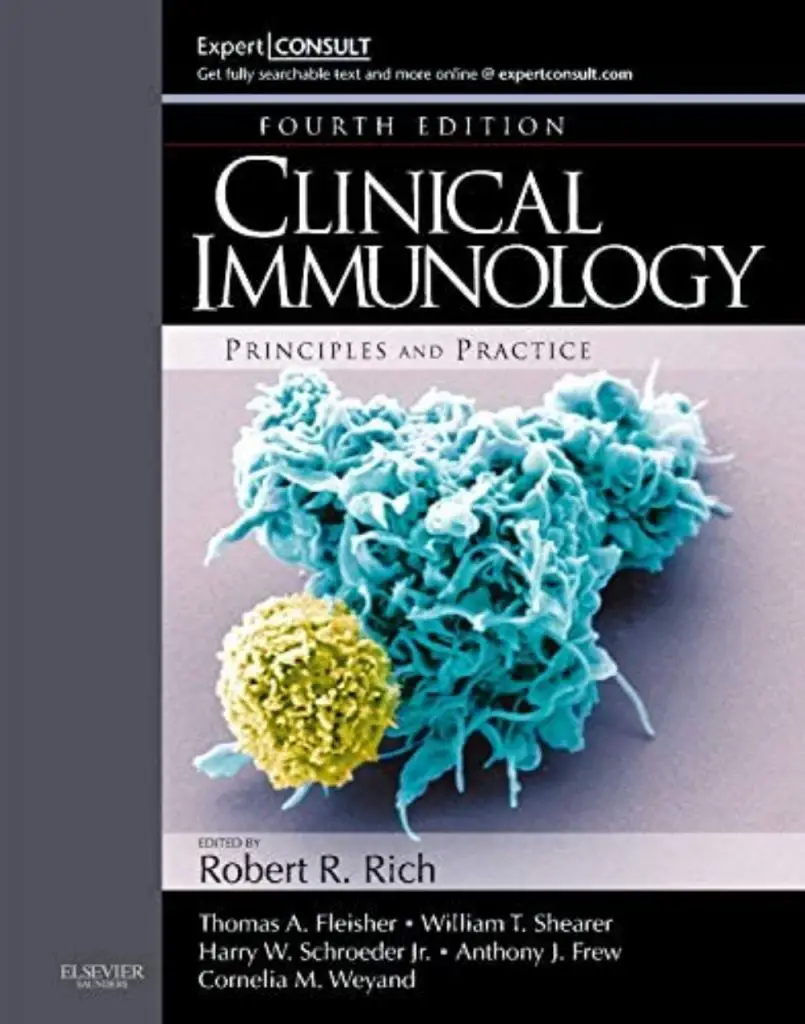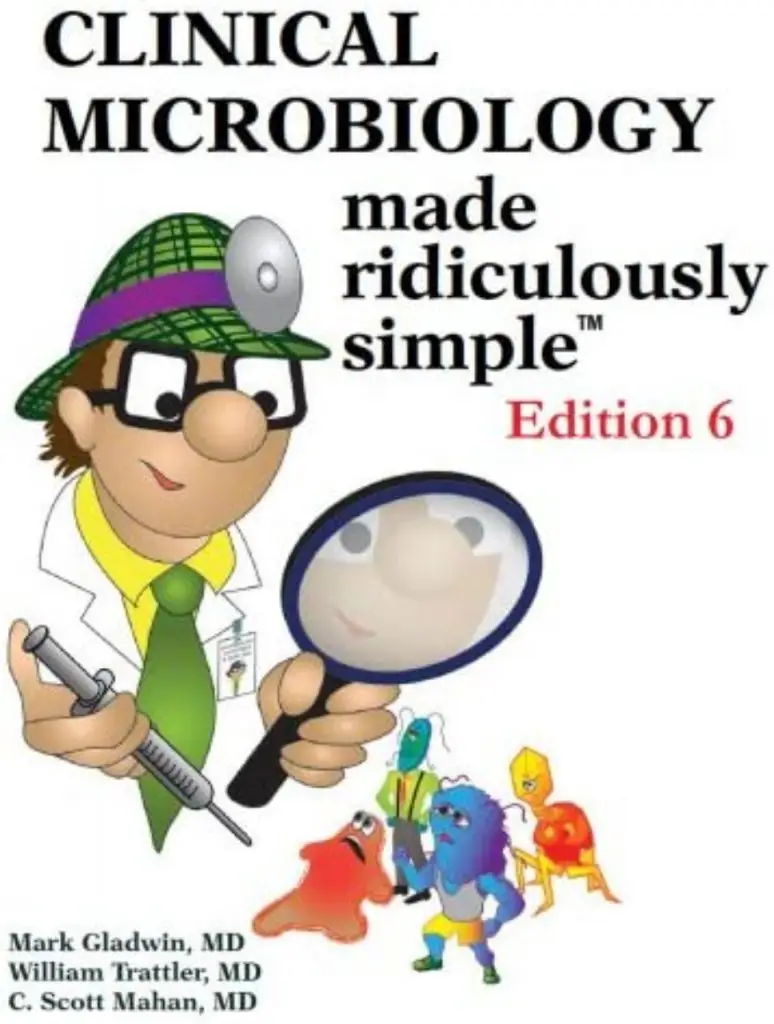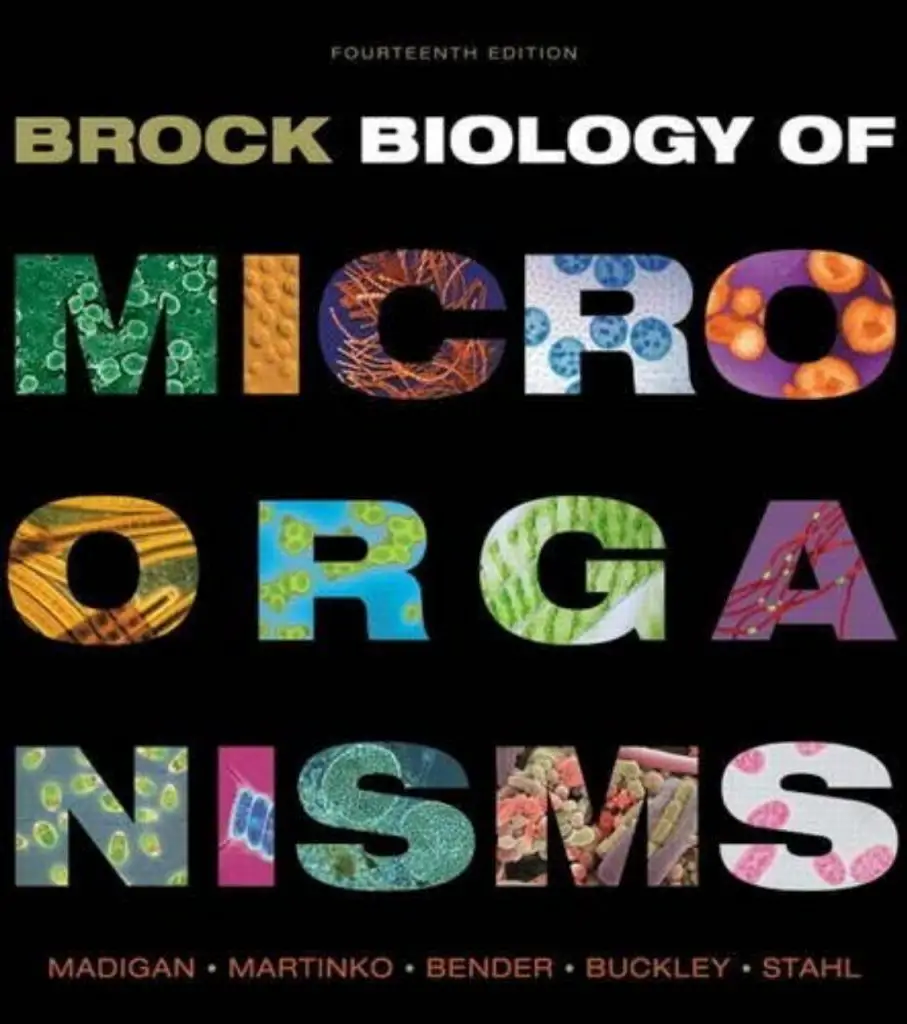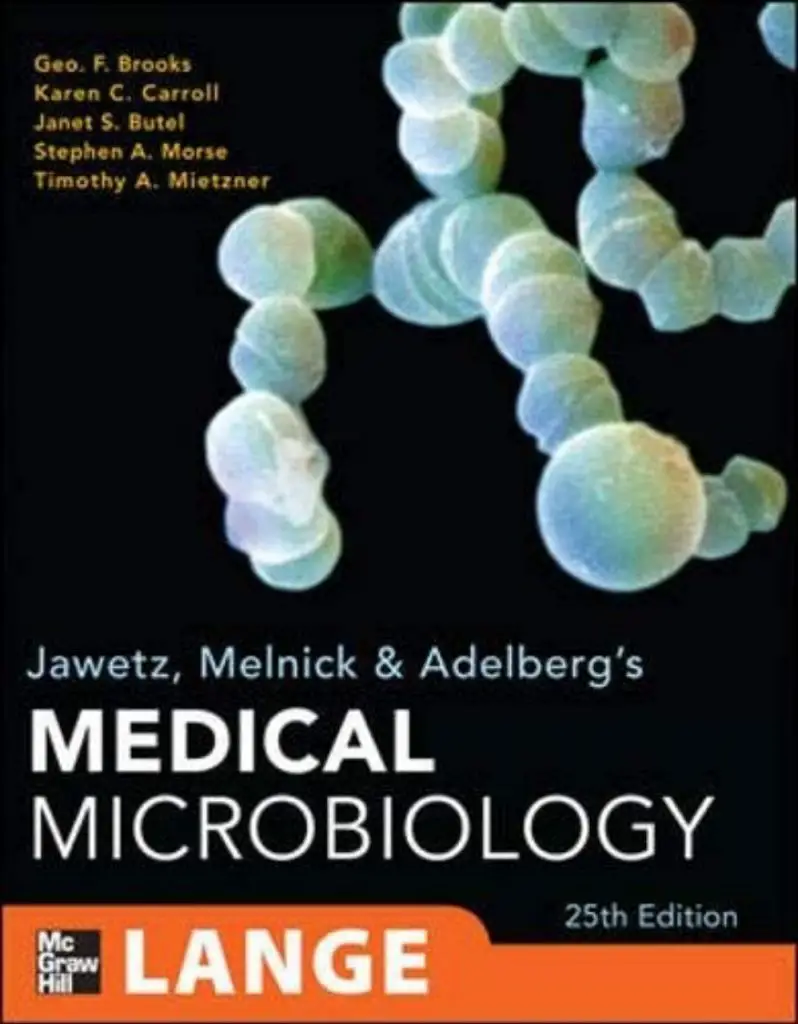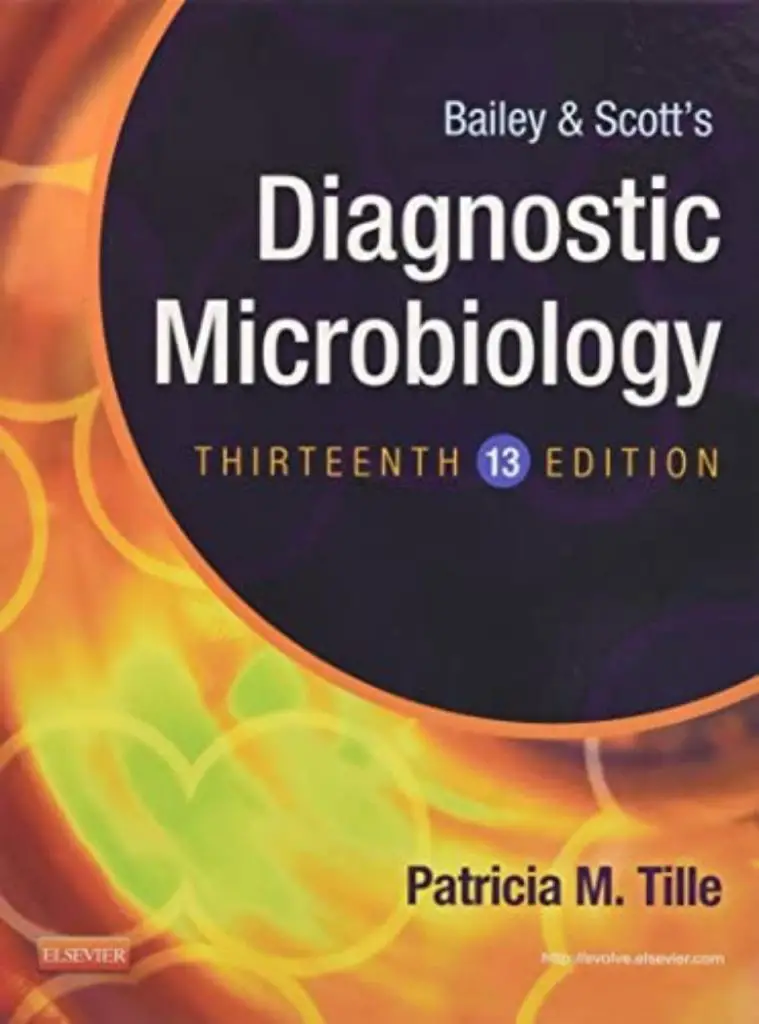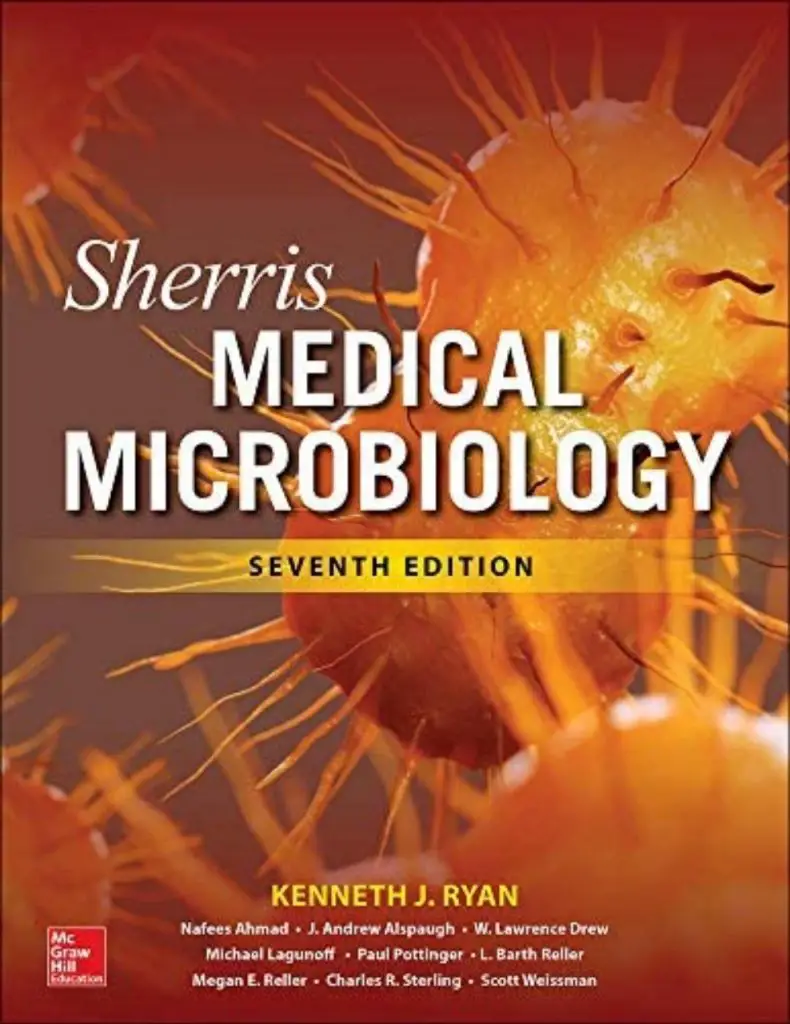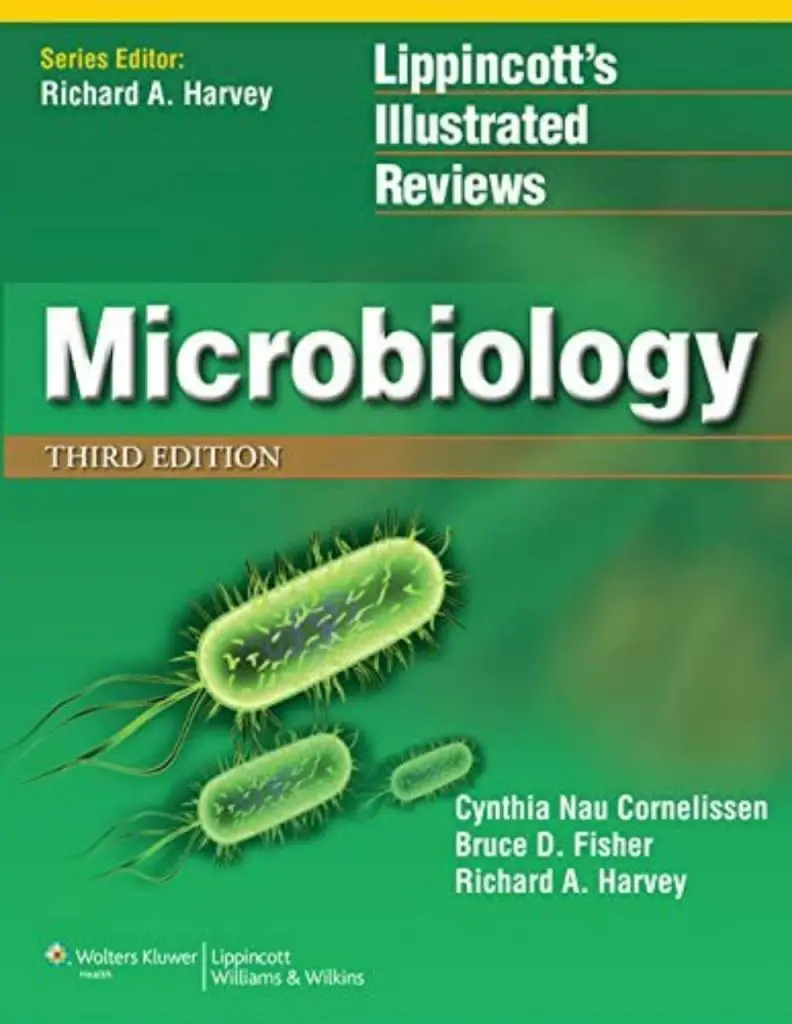Ever wondered what the must-read immunology and microbiology books are? Here is our take.
The study of immunology and microbiology is vast and ever-growing. To be able to understand the complexities of these two disciplines, one must read extensively on the topic. Here we present a list of 15 books that we believe people must read about immunology and microbiology.
The books are chosen from different sources such as reviews by experts, school recommendations, and personal picks.
Let’s start!
Table of Contents
List of the Best Immunology and Microbiology Books
Part I: Best Immunology Books
- Immunology Made Ridiculously Simple [Get the book]
- Immunology: A Short Course [Get the book]
- Cellular and Molecular Immunology [Get the book]
- Roitt’s Essential Immunology [Get the book]
- Kuby Immunology [Get the book]
- Basic and Clinical Immunology [Get the book]
- Clinical Immunology [Get the book]
Part II: Best Microbiology Books
- Clinical Microbiology Made Ridiculously Simple [Get the book]
- Brock’s Biology of Microorganisms [Get the book]
- Microbiology [Get the book]
- Prescott’s Microbiology [Get the book]
- Medical Microbiology [Get the book]
- Diagnostic Microbiology [Get the book]
- Medical Microbiology [Get the book]
- Sherris Medical Microbiology [Get the book]
- Lippincott’s Microbiology [Get the book]
Part I: Best Immunology Books
Immunology Made Ridiculously Simple by Massoud Mahmoudi
Intro-Why you should read it
Mahmoudi’s Immunology Made Ridiculously Simple presents a straightforward recap of the clinical aspects of this complex field.
Summary-What this book is about
The book has a section on basic science that covers antigens, antibodies, immune cells, and immunity (adaptive and innate).
The second part of this book talks about the clinical aspects of tumor immunology, such as diagnostic tests, immunodeficiency, transplantation, vaccination, hypersensitivity, and autoimmunity, as well as how these things work in people.
Key Takeaways
- The book begins with simple concepts before moving to more complex ones.
- Develop a smart reading habit by noting down your learning objectives and confirming that you have achieved them. Medical science is a complex field that requires top-notch comprehension of fundamentals.
Immunology: A Short Course by Richard Coico, Eli Benjamini, and Stephen P. Ferreri
Intro-Why you should read it
Immunology is a complex and ever-changing field, which can make it difficult to keep up with the latest research. However, “Immunology: A Short Course” by Eli Benjamini and Stephen P. Ferreri provides a clear and concise overview of the immune system, making it an essential read for anyone looking to stay up-to-date on the latest developments.
Benjamini and Ferreri’s “Immunology: A Short Course” is a great introduction to the subject for those who are new to the field.
While “Immunology: A Short Course” is certainly not a comprehensive guide to the subject, it is an excellent resource for those looking to learn more about how the immune system works and how to keep it functioning properly.
Summary-What this book is about
The book covers a wide range of topics, from the structure and function of the immune system to the latest immunotherapy treatments. In addition, the authors provide actionable takeaways that can help readers optimize their own immune health.
Whether you are a student, a healthcare professional, or simply someone who wants to learn more about immunology, “Immunology: A Short Course” will give you some practical ideas.
Key Takeaways
The book is clearly written and provides a concise overview of the immune system and its components. Perhaps most importantly, the authors provide practical advice on how to boost immunity and protect against infection.
Benjamini and Ferreri recommend getting plenty of sleep, exercising regularly, and eating a healthy diet.
- The immune system is complex and constantly evolving, making it difficult to keep up with the latest research.
- The book provides a clear and concise overview of the immune system, making it an essential read for anyone looking to stay up-to-date on the latest developments.
- The authors provide actionable takeaways that can help readers optimize their own immune health, including getting plenty of sleep, exercising regularly, and eating a healthy diet.
Cellular and Molecular Immunology by Abu Abbas, Andrew Lichman, and Shiv Pillai
Intro-Why you should read it
We recommend Cellular and Molecular Immunology for biomedical students, scientists, and physicians because of its interesting standpoint on molecular immunology.
Summary-What this book is about
Cellular and Molecular Immunology, like previous editions, features a unique writing style that presents basic immunology in easy-to-understand prose.
The book builds on simple concepts, making it a good tool for progressive learning.
This bestseller provides readers with a remarkable introduction to basic immunology.
The 10th edition features updated content necessary in this fast-changing field.
Key Takeaways
- Immunologic science affects clinical practice and human disease management.
- The book tackles innate immunity by providing recent intracellular sensor information.
- Use the summary boxes to reinforce your understanding of the text.
Roitt’s Essential Immunology by Peter Delves, Seamus Martin, Dennis Burton, and Ivan Roitt
Intro-Why you should read it
This book explains the core principles medical students require during their medical coursework.
Summary-What this book is about
This edition includes a student-friendly introductory text on the immune system. The book supports students who need an in-depth understanding of the principles of immunology.
Roitt’s Essential Immunology covers the basics of immunology, the immune system, and applied immunology.
Key Takeaways
- There is a lot of information about innate immunity, asthma, HIV/AIDS, and autoimmune diseases in the book.
- This book presents key ideas using new illustrations and improved artwork.
- The glossary helps students understand fundamental immunology terms.
Kuby Immunology by Richard Goldsby, Thomas Kindt, Barbara Osborne, and Janis Kuby
Intro-Why you should read it
We recommend this book for undergraduate medical students due to its in-depth information on immunology.
Kuby Immunology is written by professors who double as college instructors, making this text a student-friendly book.
Summary-What this book is about
This book introduces the latest concepts in immunology using a clear writing style.
The book highlights clinical advances to give an up-to-date read on this complex field.
Key Takeaways
- The college professors who wrote this book designed it to meet classroom requirements.
- When learning core principles about the field you’re interested in, pay close attention.
- Be alert for updates, especially when you are dealing with a fast-changing field such as medicine.
Basic and Clinical Immunology by Mark Peakman and Diego Vergani
Intro-Why you should read it
This book covers basic clinical immunology and science and is recommended for health sciences and medical students.
Summary-What this book is about
The book begins with an overview of fundamental immunological processes. The less detailed section is necessary for medical curricula.
The complex principles of immunological mechanisms come next. The authors explain the mechanisms that influence diseases of the human body.
Key Takeaways
- The authors use a student-friendly writing style to provide more information to students within a short time frame.
- The book is ideal for practitioners. The authors build on the simple concepts to create in-depth information.
Clinical Immunology: Principles and Practice by Robert Rish, Thomas Fleisher, William Shearer, Henry Schroeder, Antony Frew, and Cornelia Weyand
Intro-Why you should read it
This book provides the most recent advances in clinical immunology.
The 5th edition guides students through today’s evidence-based principles.
Summary-What this book is about
This highly rated book features content updates and rewritten chapters organized to improve your management and diagnosis skills in everyday practice.
Key Takeaways
- Be dynamic. Don’t stick to conventional technologies. Always be ready to learn the latest advances in medicine.
- You need top-notch diagnosis skills in the field of medicine.
Part II: Best Microbiology Books
Clinical Microbiology Made Ridiculously Simple, 6th Edition by Mark Gladwin, Bill Trattler, and C. Scott Mahan
Intro-Why you should read it
If you are looking for a concise, detailed book on clinical microbiology, then you are in the right section of this list.
Summary-What this book is about
Clinical Microbiology Made Ridiculously Simple with illustrations, mnemonics, summary charts, and humor to offer you an overview of the field of medical microbiology.
Key Takeaways
- The book employs illustrations to break down complex medical concepts into easy-to-understand chunks.
- Clinical microbiology is a challenging profession that needs thorough study.
Brock’s Biology of Microorganisms, 14th Edition by Michael Madigan, John Martinko, Kelly Bender, Daniel Buckley, David Stahl, and Thomas Brock
Intro-Why you should read it
Brock’s Biology of Microorganisms is a popular student introductory textbook on microbiology.
This book combines revolutionary research in microbiology and biology.
Summary-What this book is about
The book covers metabolism, evolution, and ecology.
The 14th Edition incorporates the most up-to-date science, with a focus on molecular biology. The Brock Book of Microorganisms explores the genomic revolution and the changes it continues to make in microbiology.
Mastering Microbiology is included in this book to improve students’ learning experience.
Key Takeaways
- Biological research is key to advancements in the field of microbiology.
- The book comes with an important tool: Mastering Microbiology, which enhances your understanding of the text.
Microbiology: An Introduction by Gerald Tortora, Berdell Funke, and Christian Case
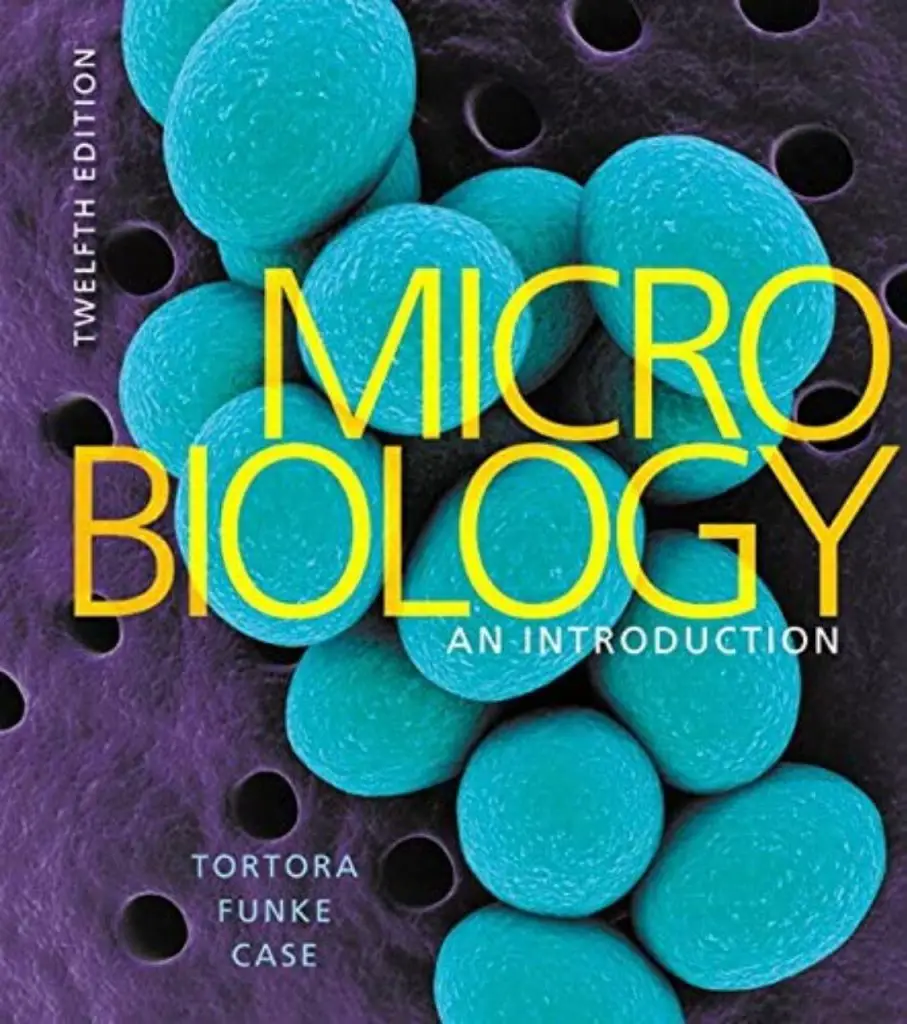
Intro-Why you should read it
This bestselling book is a popular microbiology book due to its straightforward approach to complicated topics.
Summary-What this book is about
The book focuses on complex microbiological concepts while urging students to synthesize challenging topics in immunology and microbial genetics.
Key Takeaways
- Microbiology theory, disease prevention, clinical diagnosis, and treatment are interrelated.
- The simple publication language makes this text every student’s favorite microbiology.
- Systematically uncover complex topics, including immunology. Start from the basic principles to the complicated ones.
Prescott’s Microbiology by Joanne Willey, Linda Sherwood, and Christopher Woolverton
Intro-Why you should read it
Following in the footsteps of the previous editions, this one gives an in-depth look at the most important parts of microbiology.
Summary-What this book is about
The book includes a variety of instructional components that will help students effectively learn the core principles of microbiology.
Prescott’s Microbiology is focused on artwork and readability, making this book an excellent read.
This book covers key concepts in diversity, ecology, and evolution.
Key Takeaways
- This edition discusses safety in the laboratory, unlike other versions.
- The book checks for learning and readiness outcomes.
Jawetz, Melnick & Adelberg’s Medical Microbiology 26th Edition by Geo Brooks, Karen Carroll, Janet Butel, and Stephen Morse
Intro-Why you should read it
This microbiology and immunology book is important in your medical microbiology coursework.
The medical microbiology textbook provides a comprehensive summary of the functions of microorganisms in human health.
Summary-What this book is about
Jawetz, Melnick & Adelbergs Medical Microbiology introduces readers to the fundamentals of clinical microbiology via parasitology, mycology, virology, and bacteriology.
This book shows how much medical knowledge has changed since the last version came out.
Jawetz, Melnick & Adelbergs Medical Microbiology discusses diagnostic laboratory tests, pathogenesis, clinical findings, treatment, and descriptions of organisms.
Key Takeaways
- Microorganisms play an important role in human health.
- The book features the most recent research findings in medical microbiology.
- Be a fast learner to grasp every aspect covered in the microbiology course.
Bailey & Scott’s Diagnostic Microbiology by Patricia Tille
Intro-Why you should read it
This book discusses key concepts in your medical course or career.
We recommend Diagnostic Microbiology to students and practitioners because of its thorough elaboration of the foundational ideas in medical or biological sciences.
Summary-What this book is about
Bailey and Scott’s Diagnostic Microbiology is designed to assist students in developing the skills required in laboratory testing.
This book provides in-depth coverage of the recent trends and advances in clinical microbiology.
Key Takeaways
- The case studies help enhance your ability to think critically and make smart decisions.
- You can improve your learning experience with practice questions.
- You can have measurable learning outcomes by focusing on the objectives provided at the start of the chapter.
Medical Microbiology: A Guide to Microbial Infections by David Greenwood, Richard Slack, Will Irving, and Michael Barer
Intro-Why you should read it
You should read this book if you want a concise, up-to-date handbook on medical microbiology.
We recommend Medical Microbiology to medical students, medical lab scientists, or other practitioners looking for a research-based argument on microbiology.
Summary-What this book is about
Medical Microbiology explores microbes and microbial activities, including their effects on health.
In a world haunted by microbes and their constant changes, the authors of Medical Microbiology offer an inspiring read.
The book covers infective agents, immunity, and infection. The book also has a section on key principles of disease diagnosis, management, and treatment.
Key Takeaways
- You don’t need prior knowledge of microbiology to understand this text. The book acts as an introductory course to medical microbiology. The publication language is beginner-friendly.
- You need strong management skills to succeed in medical microbiology.
- The online resources incorporated into this book enhance your understanding of the principles.
Sherris Medical Microbiology by Kenneth Ryan
Intro-Why you should read it
If you prefer heavy books for your studies, this text is the perfect one for you.
Sherris Medical Microbiology is a book that discusses important infectious diseases in detail.
This book boasts extensive coverage of the essential medical microbiology required in medical school.
Summary-What this book is about
Even though Sherris Medical Microbiology is a comprehensive textbook, the author employs a student-friendly style in presenting the concepts, making this book the best reference book for readers.
Key Takeaways
- The author discusses etiologic agents, pathogenic processes, and epidemiology.
- The concepts covered in this text form the foundation for therapy.
- The book is a must-read for anyone looking to learn more about infectious diseases.
Lippincott’s Microbiology by Cynthia Cornelissen
Intro-Why you should read it
You may want to learn more about microbes, their activities, and their effects on human health.
Because of this in-depth coverage, Young Scrubs joins the other book review sites to recommend Microbiology to medical microbiology students and professionals.
Microbiology is both a review topic and a textbook.
Summary-What this book is about
This 400-page book covers all the microbiological information you need for your medical course.
The text discusses parasites, bacteria, fungi, and viruses. The author presents information about microbes in a step-by-step manner that makes it a fun read.
Key Takeaways
- Microbiology is a cornerstone subject to medicine. You need a strong grasp of the concepts of microbiological sciences to excel in your medical class.
- The book features end-chapter overviews to help you review the information you learned.
Conclusion
Having considered top University recommendations, experts’ opinions, and customer feedback, we recommend the 16 immunology and microbiology books for medical and biological sciences students.
Because of our thorough review process, our picks cover a wide variety of topics, from basic immunology to infectious diseases.
We hope this article was helpful.
References
Microbiology
[1] https://microbiologyinfo.com/top-and-best-microbiology-books/
[2] https://youngscrubs.com/microbiology-books/
Immunology


